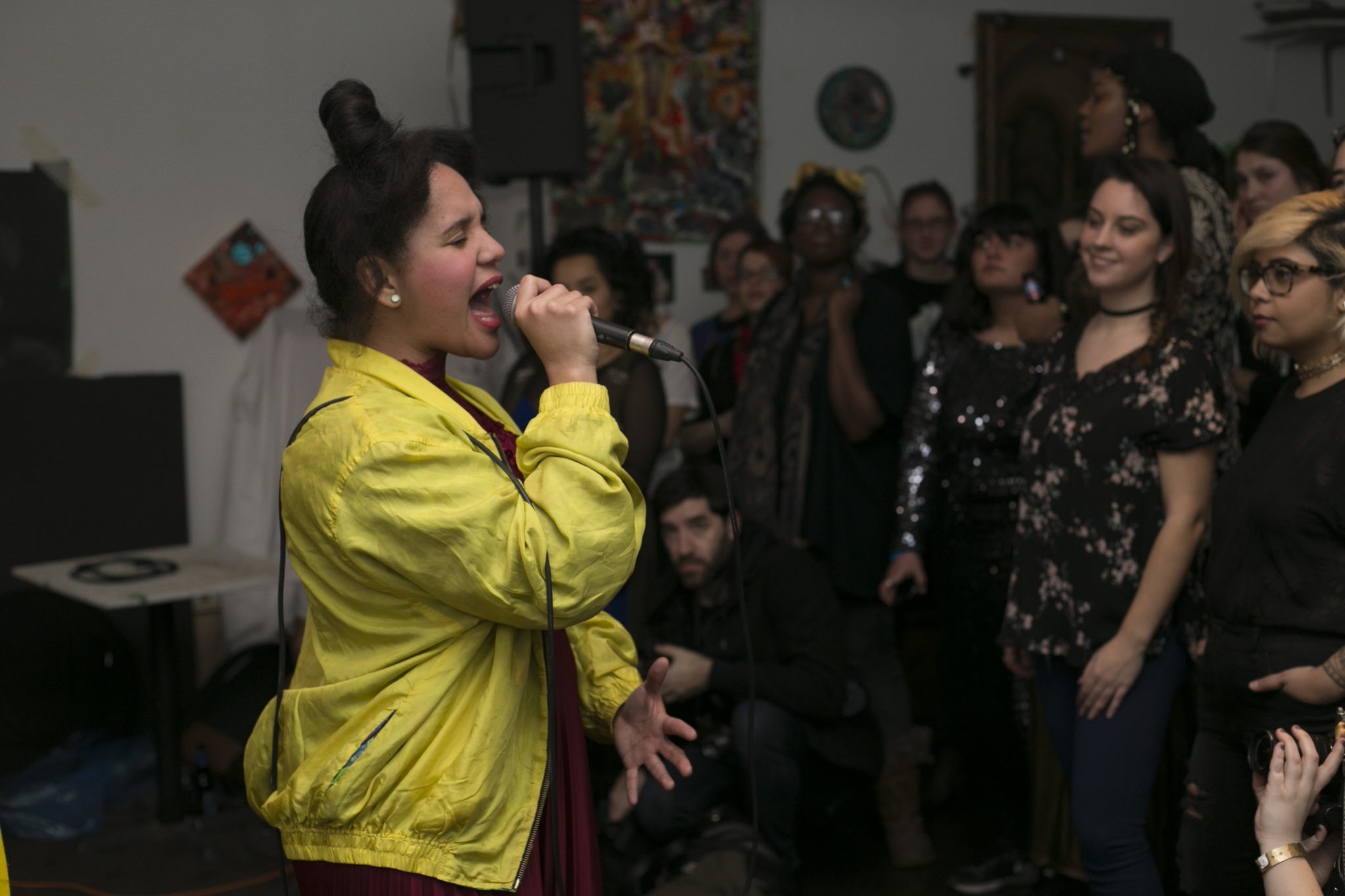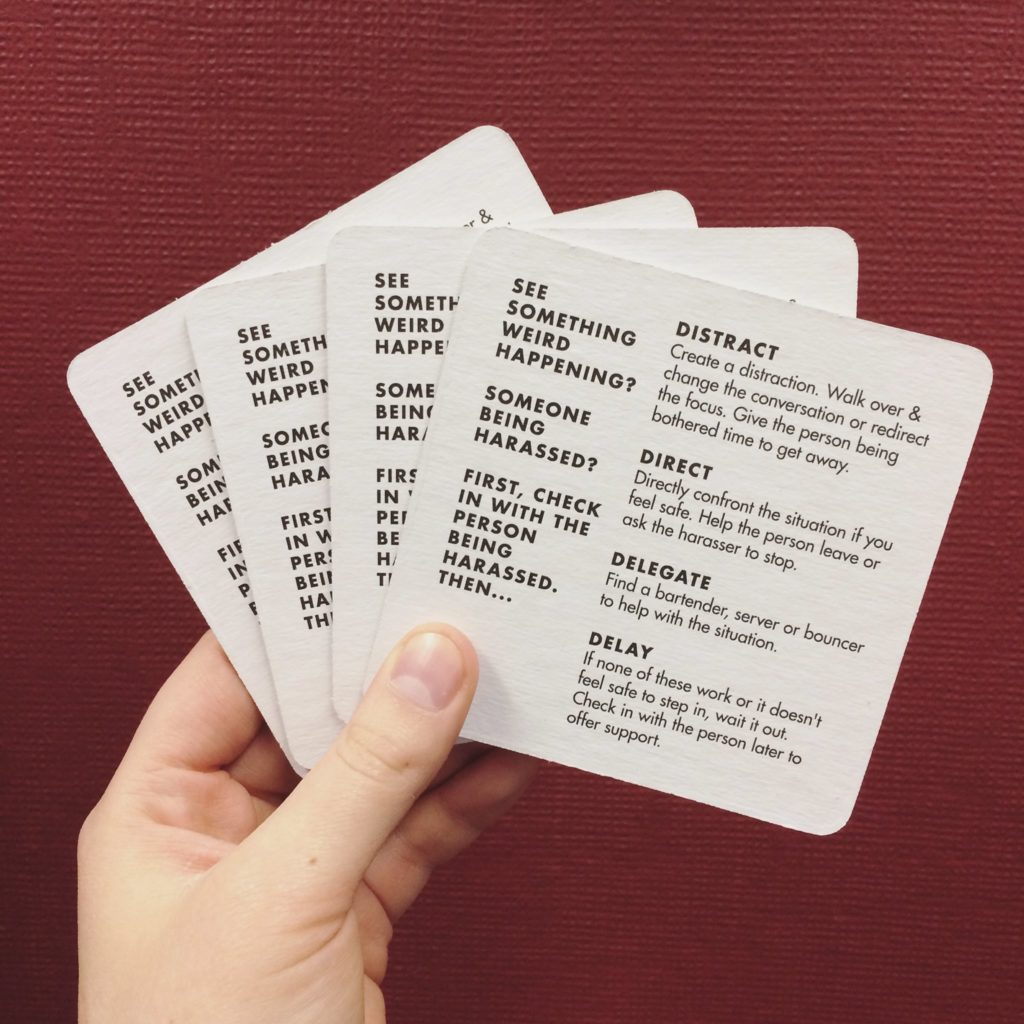Fighting Rape Culture in Canada’s Music Scene

Lido Pimienta at Megaphono Music Festival, February 1st 2017. Photo by Ming Wu.
By Elsa Mirzaei
Just earlier this month, the biggest music festival in Sweden, Bravalla, was cancelled for its 2018 season due to a staggering amount of sexual assaults that took place at this year’s event.
The issue of sexual assault at music festivals is a global one. A 2014 study done by Dr. Keri Sampsel at the Ottawa Hospital found that 25% of sexual assaults reported to the ER happened at large gatherings. Furthermore, over 60% of victims were unconscious at the time of the assault.
Women and trans folks who are especially at risk of sexual assault shouldn’t have to worry that a night of drinking and listening to live music could end like this. The risk of being assaulted is heightened by other factors as well – factors such as race, ability and sexual orientation.
As musicians, we shouldn’t have to worry about our safety once we walk off that stage either – but being followed around by strange men after our sets puts us into a state of hypervigilance almost immediately after a show.
Here in Ottawa, Project Soundcheck has gone through an evolution for its 3rd year of bystander intervention training to prevent sexual violence. From our community and artist consultations, we are digging deeper into the issue of sexual violence and predatory behaviours. It’s been very encouraging to have the support and input from festivals, industry folks, artists and community members on issues like accountability processes, racist sexual violence and new ways to keep festival goers safer.
This work is happening all across Canada right now and is just one piece of a bigger movement in music history.
Recently, New Brunswick festivals have also taken leadership in offering the Project Soundcheck bystander intervention training to their teams.
In Ontario, Vanessa Rieger’s performance art piece “Nightlife guard” has provided harm reduction and anti-harassment teams at Electric Eclectics and other music festivals.
In June, Montreal Jazz Festival introduced an all-female anti-harassment team called the Hirondelles, who can support people who feel unsafe. As well, Montreal grassroots collectives PLURI and AASK are also fighting rape culture by offering safer party crews for community events and information on how to support survivors of sexual violence.

This year in Calgary, SASS Calgary put out these wonderful coasters for Sled Island Music Festival, who’s volunteers also received bystander intervention training from the Calgary Sexual Health Centre. On the West Coast, the Vancouver wing of Good Night Out works with venues to make them safer spaces for women.
Intervention
From East to West, action is taking place. And festival season isn’t over yet, so here are a few strategies for you to intervene on pre-assault situations.
- Discover – Be aware of your surroundings, if something looks creepy or concerning, but you’re not sure – you can take a moment to gauge the situation or find out more
- Be a Distractor – If I’m at a show and I’m concerned for someone’s safety, I’ll try to act as a distraction to give them an opportunity to leave. If they are doing fine, then I’ll just be a friendly stranger! “Hey, are you enjoying the band?”
- Be Direct – Directly tell the person that their behavior is uncool, or that you’re concerned for someone’s safety. “Are you okay?”
- Delegate – We know being direct is difficult and not safe for everyone – so asses your safety and your comfort, and go to those people who can be of support – other friends, venue or festival staff and volunteers – to get assistance on checking out a situation.
Let’s keep this conversation going – tweet us @projsoundcheckottawa with your experiences, tips and questions!
Elsa Mirzaei is a local musician in Lake Urmia and a community educator for Project Soundcheck. They are dedicated to community building and creating safer spaces to create a local music scene that is more accessible and inclusive to women and nonbinary folks of colour.

